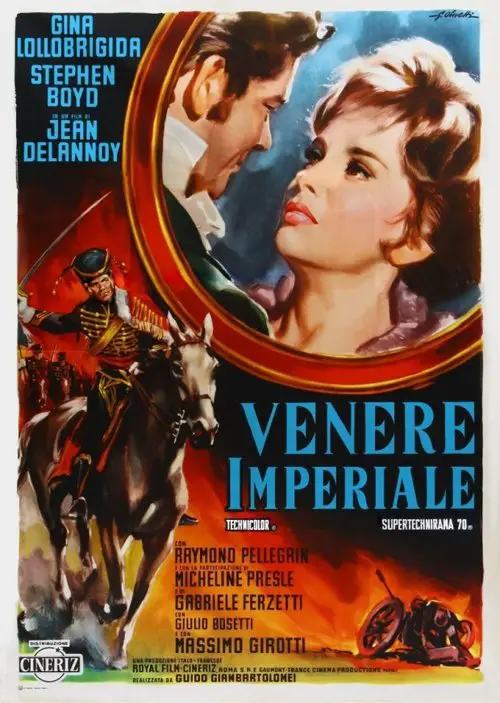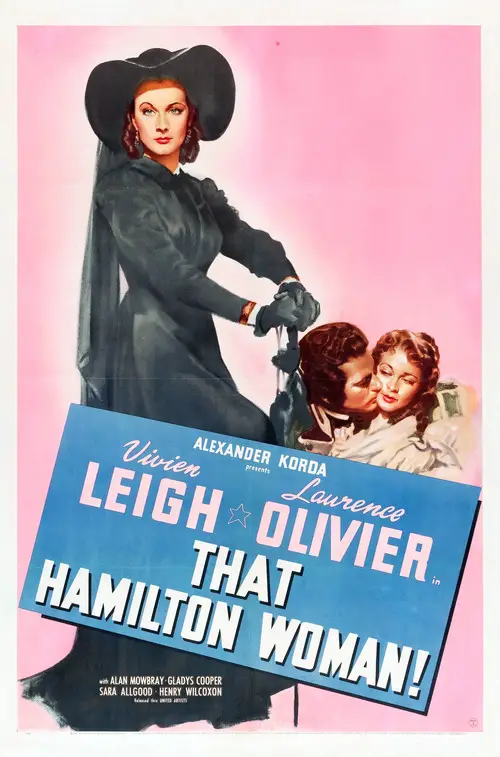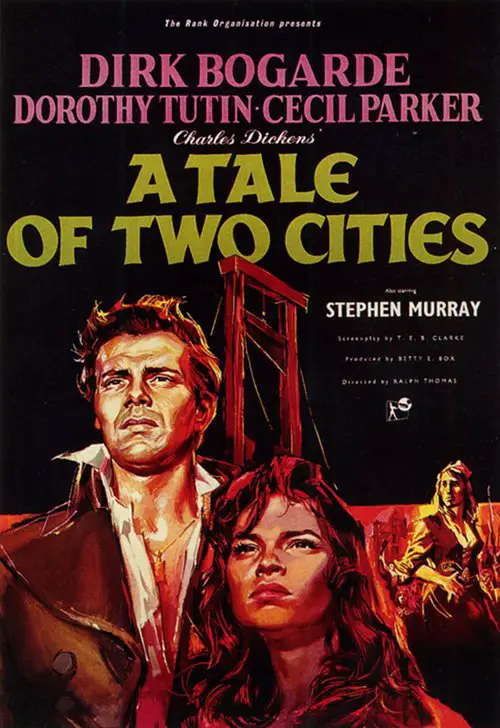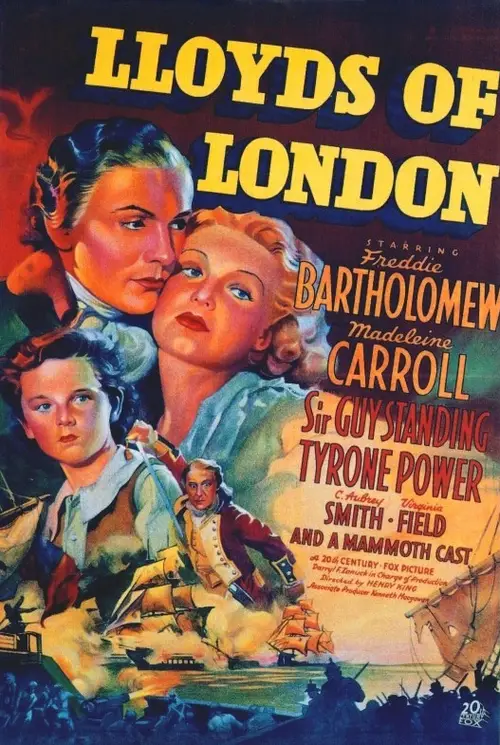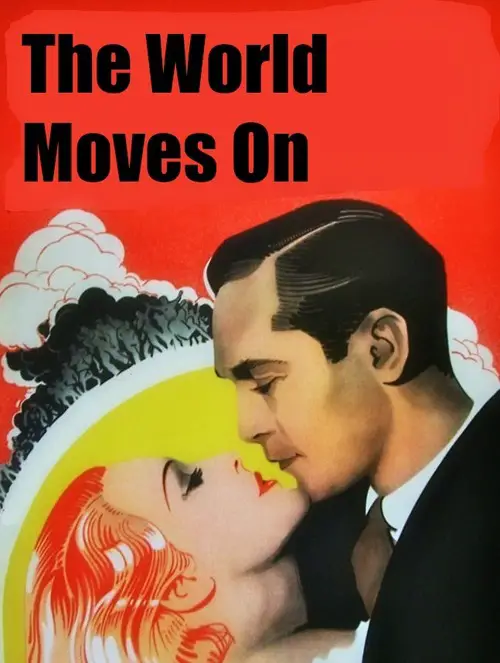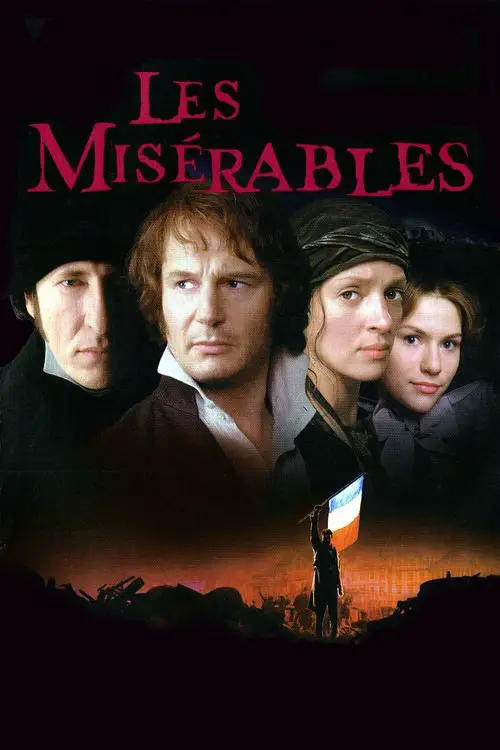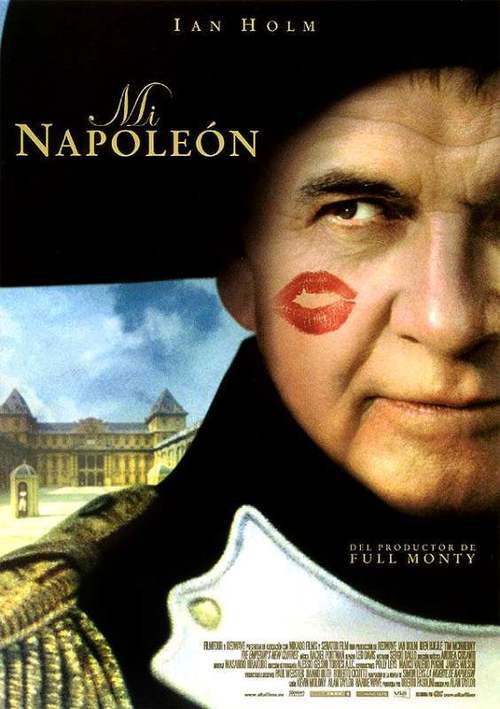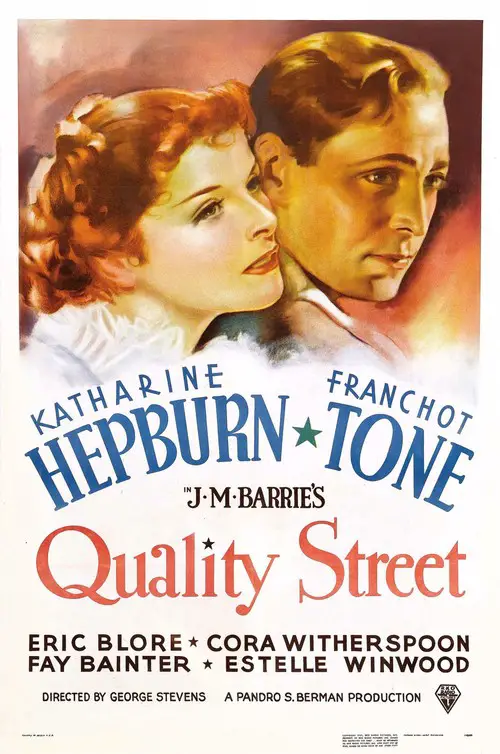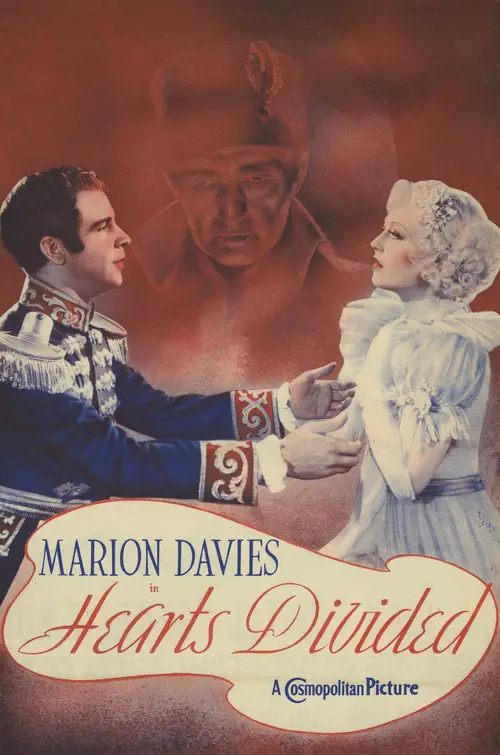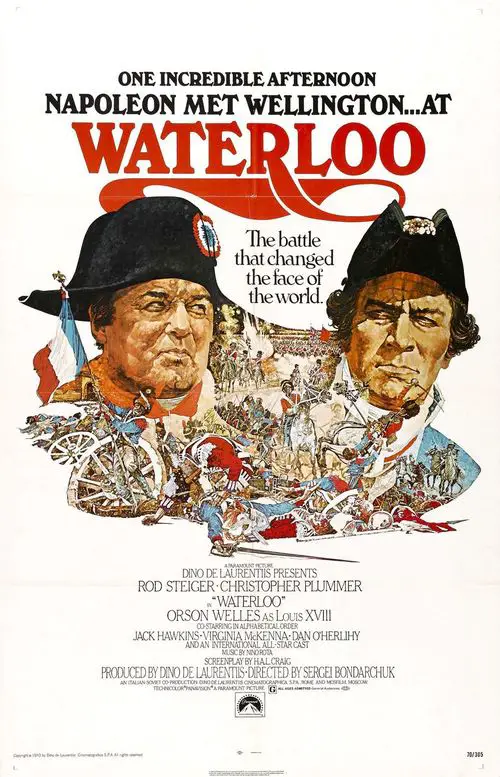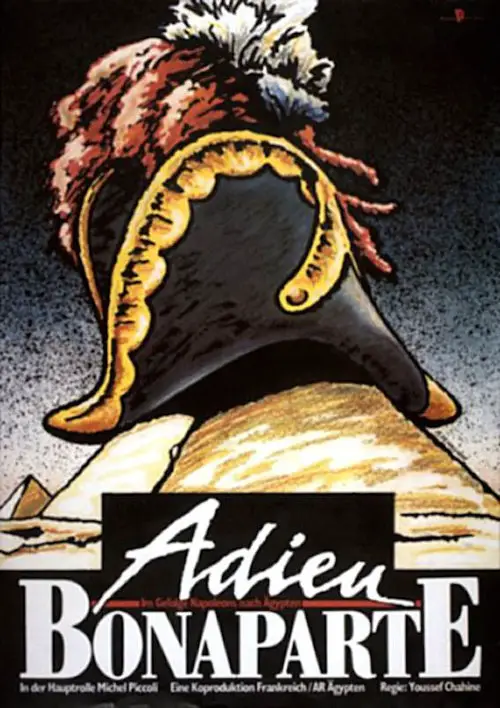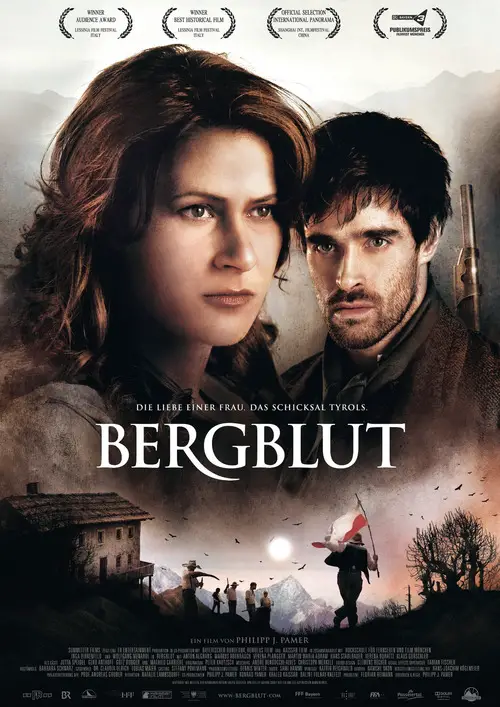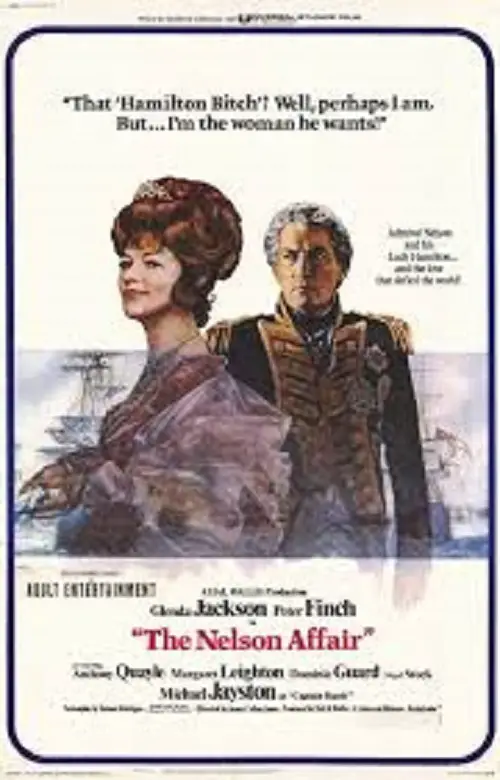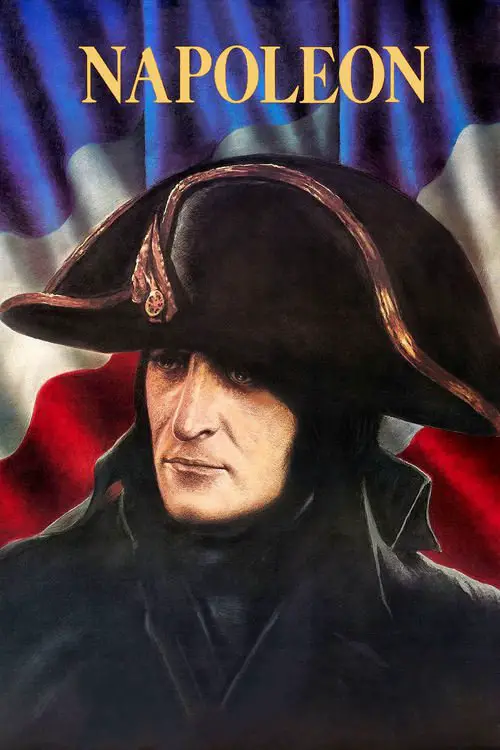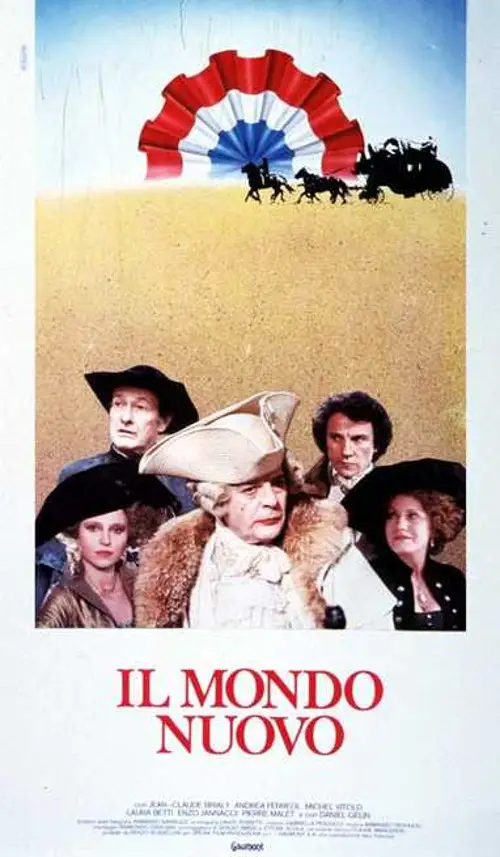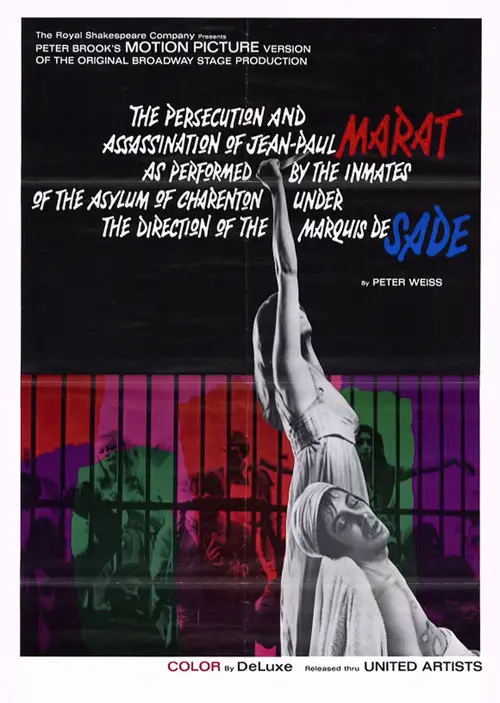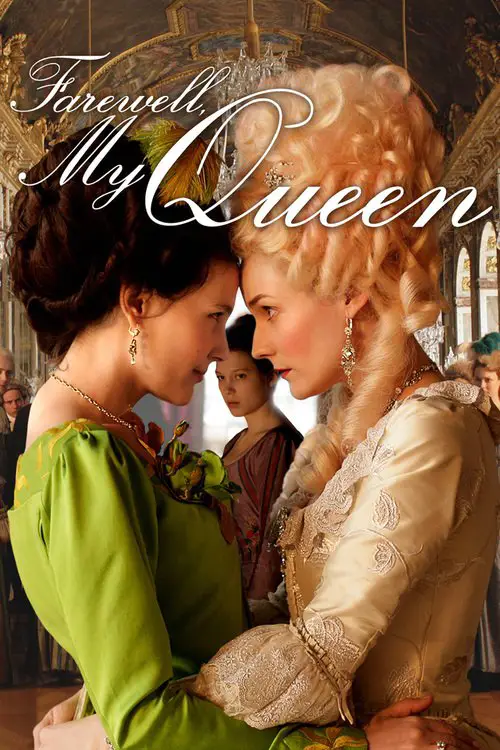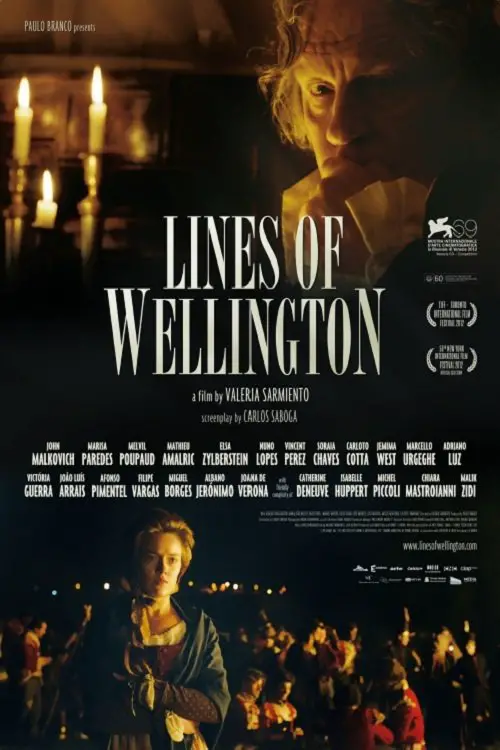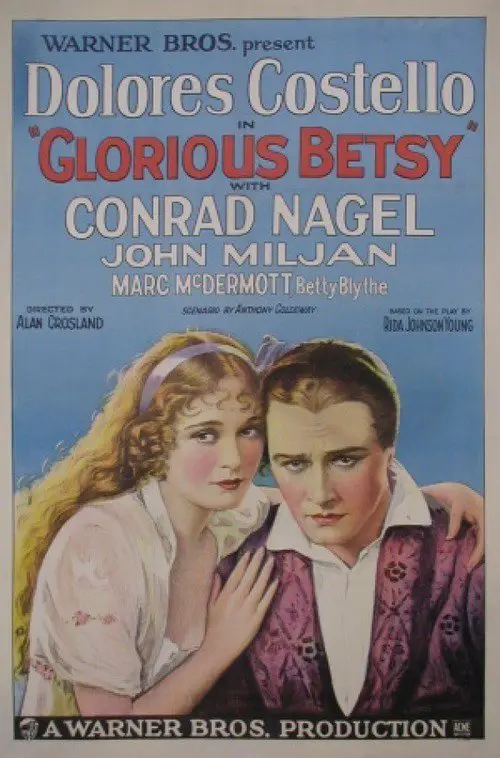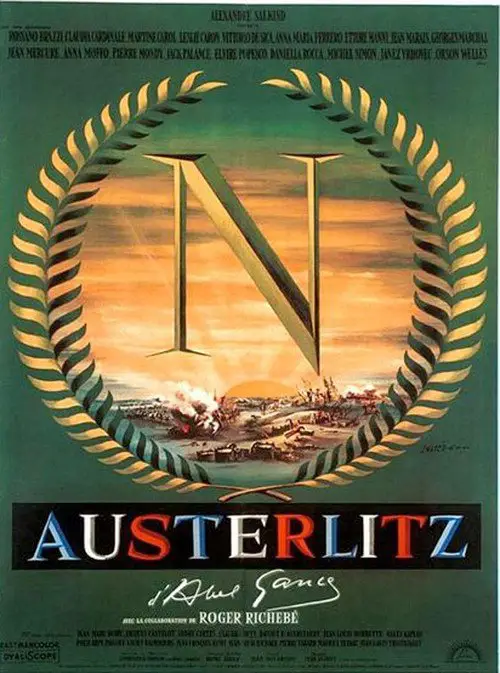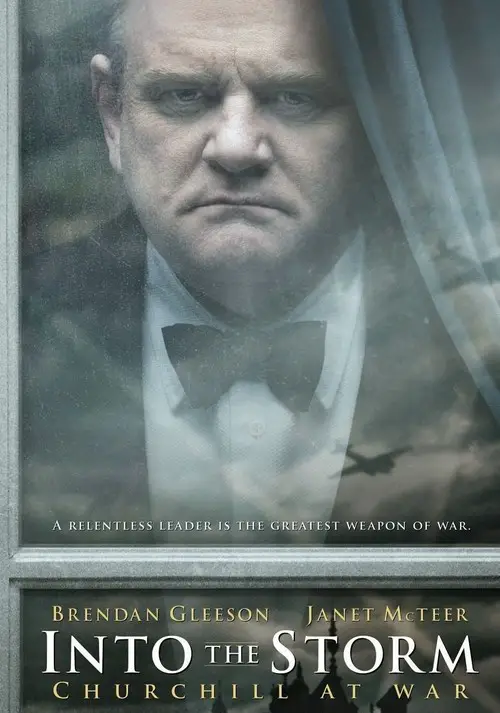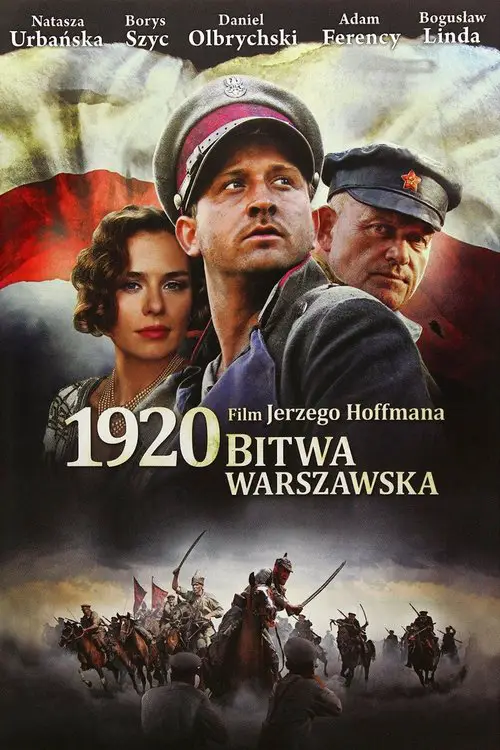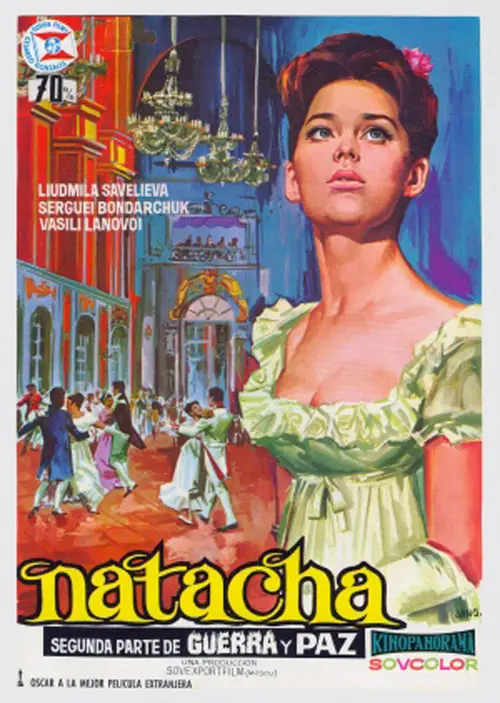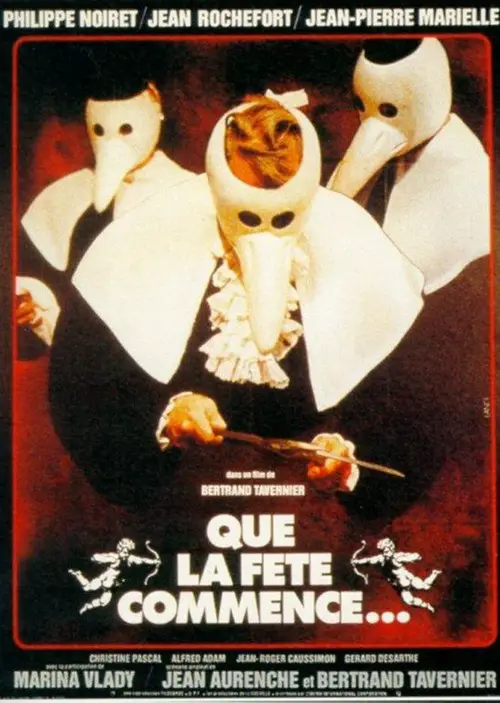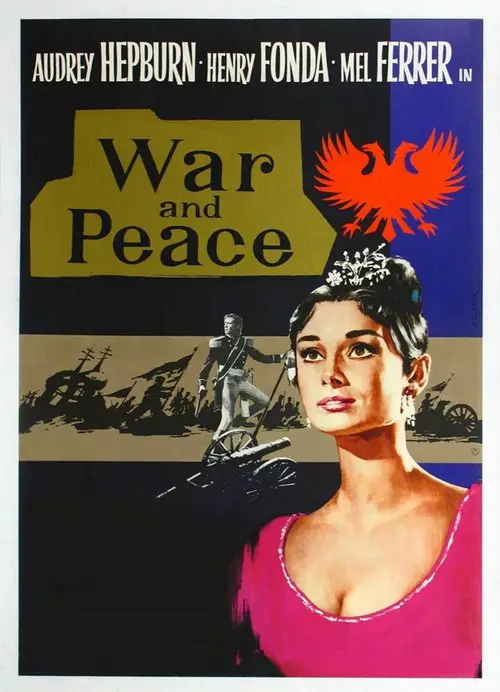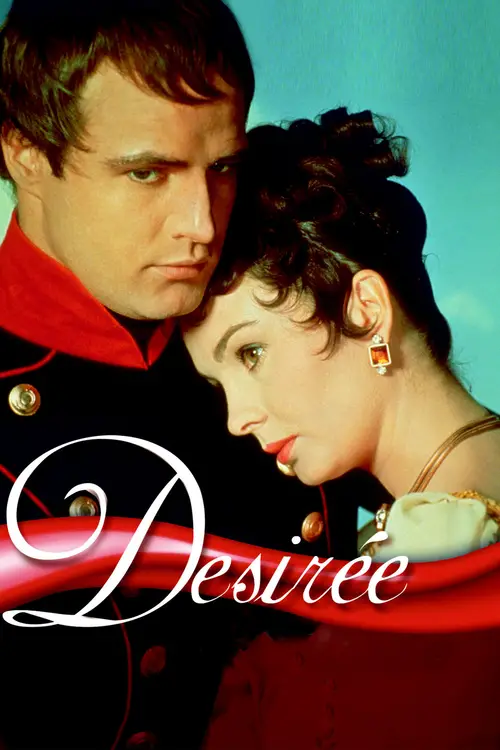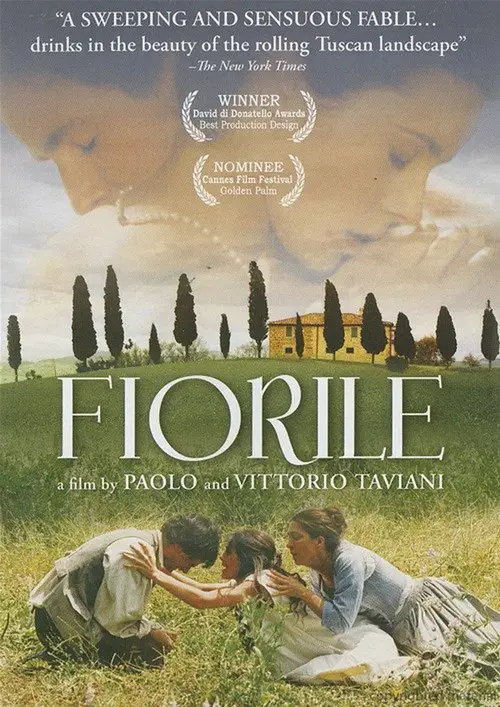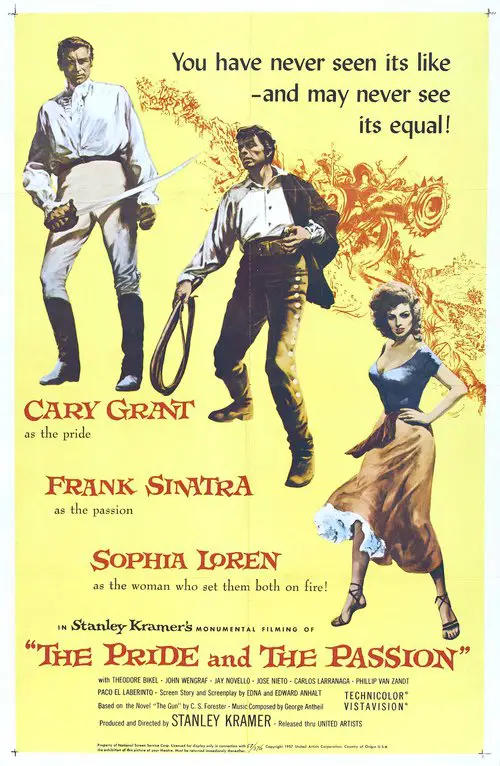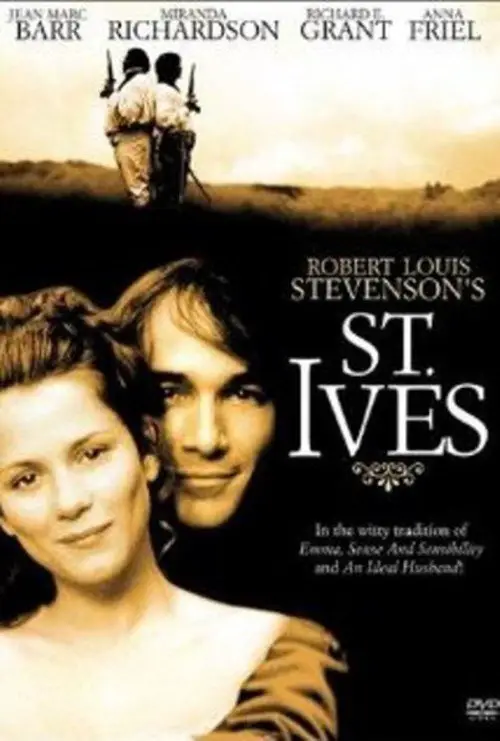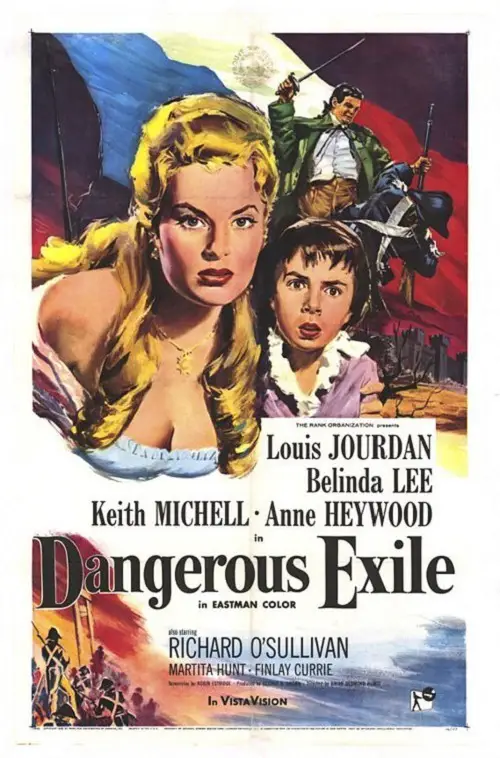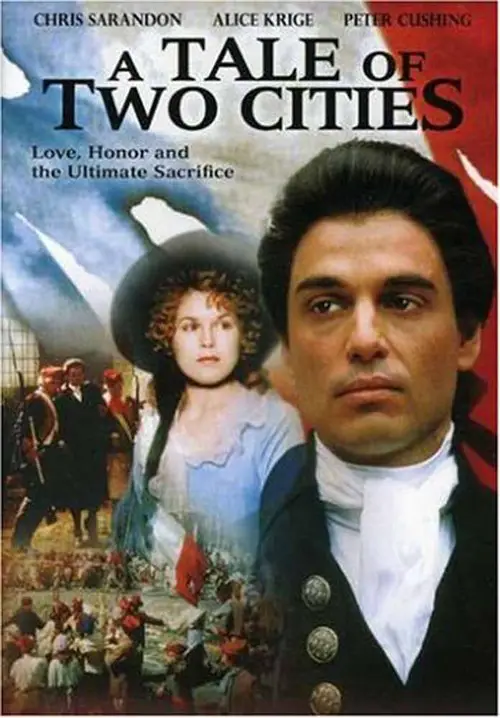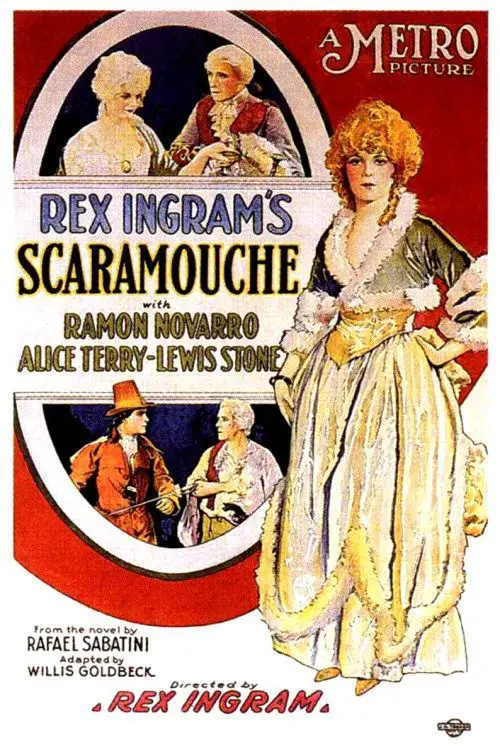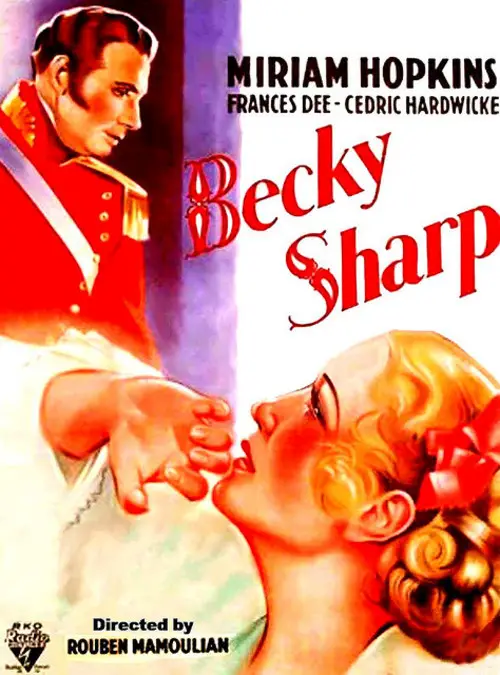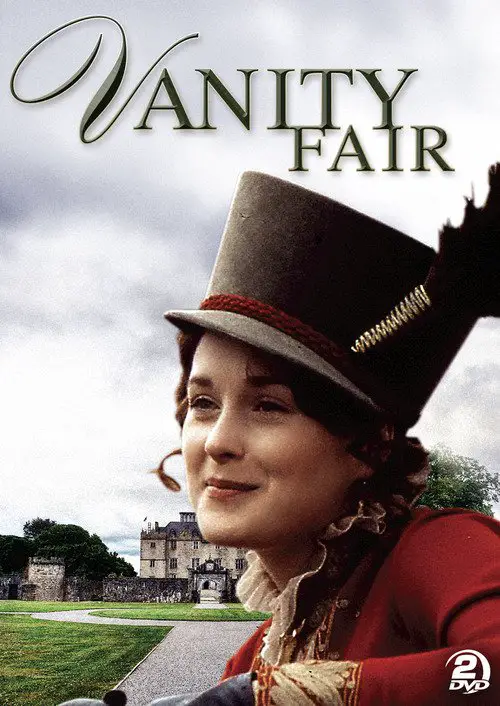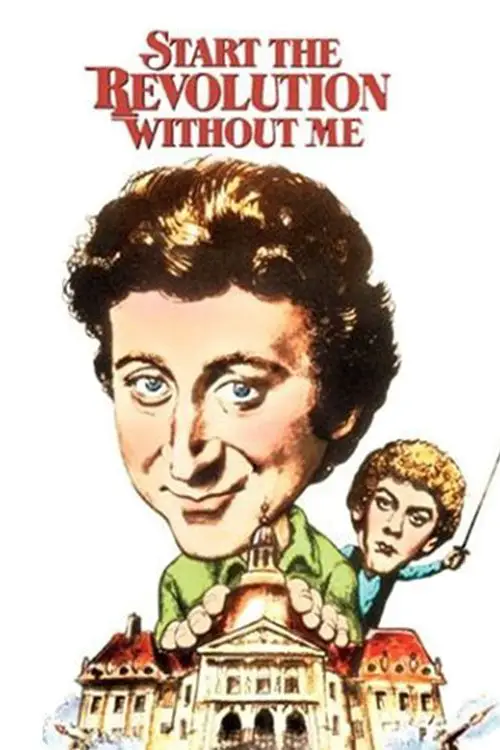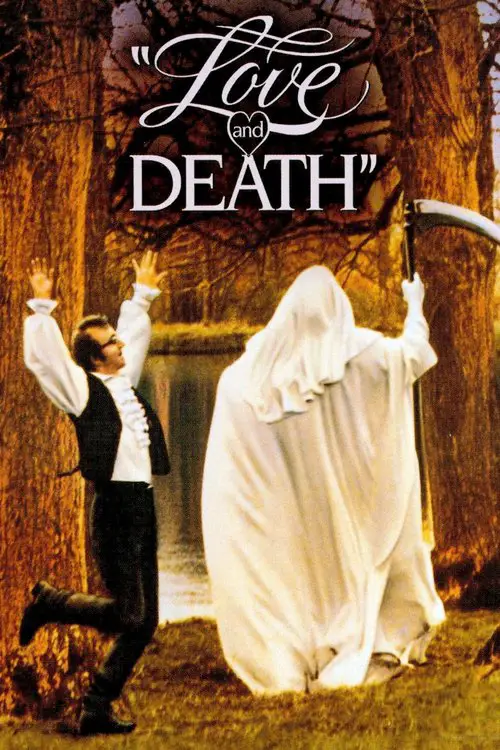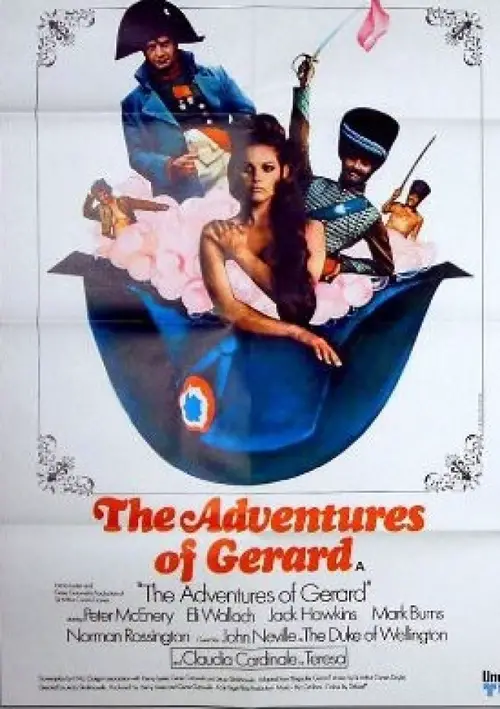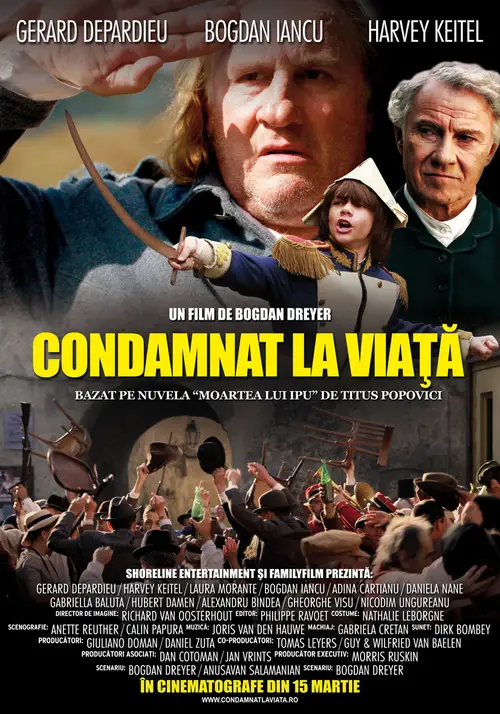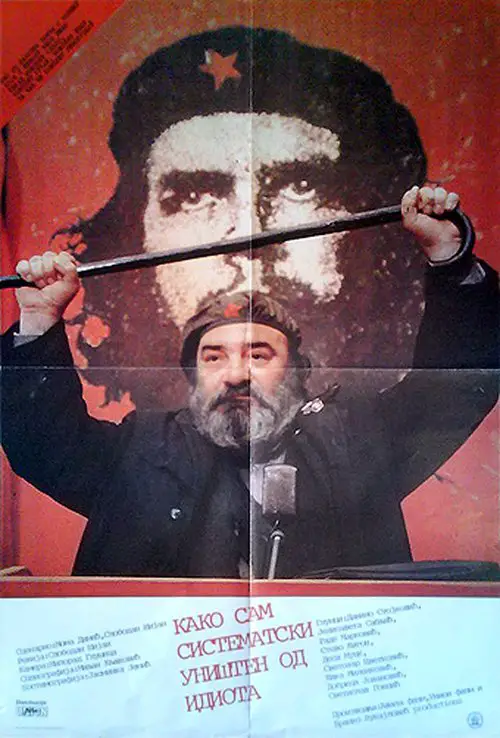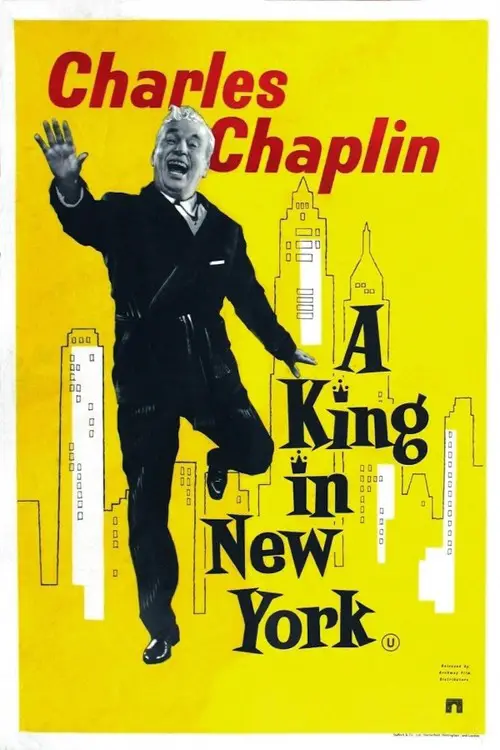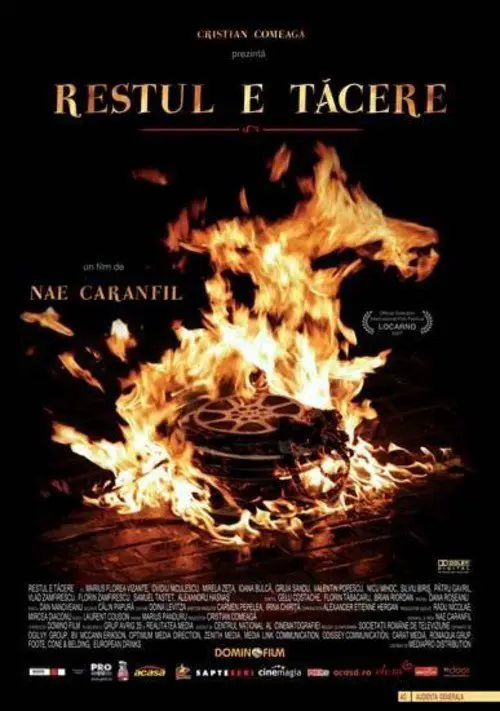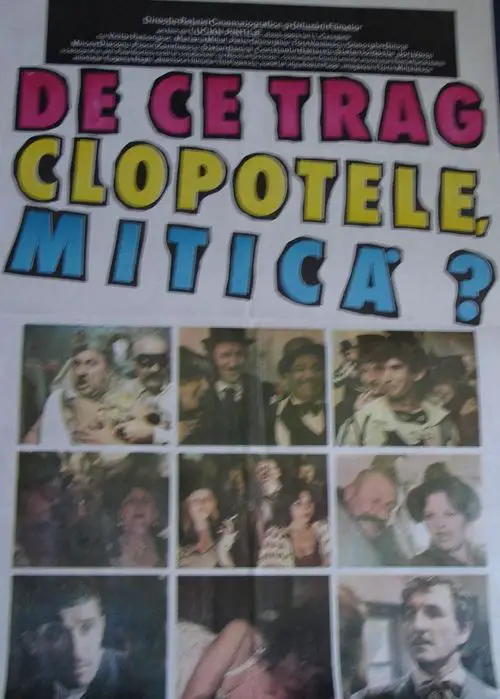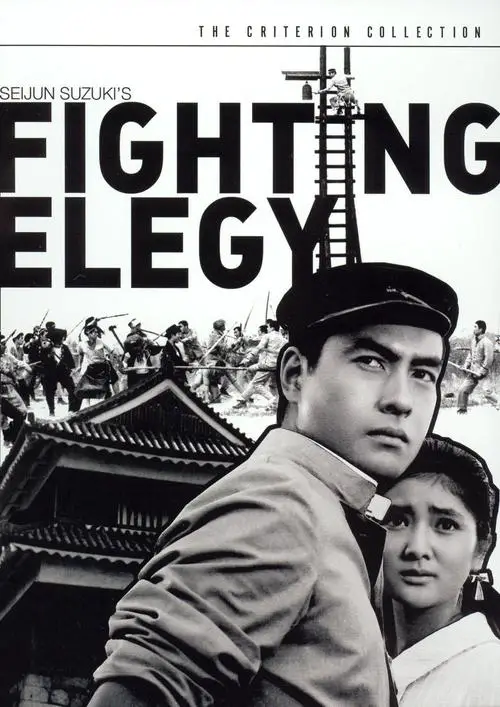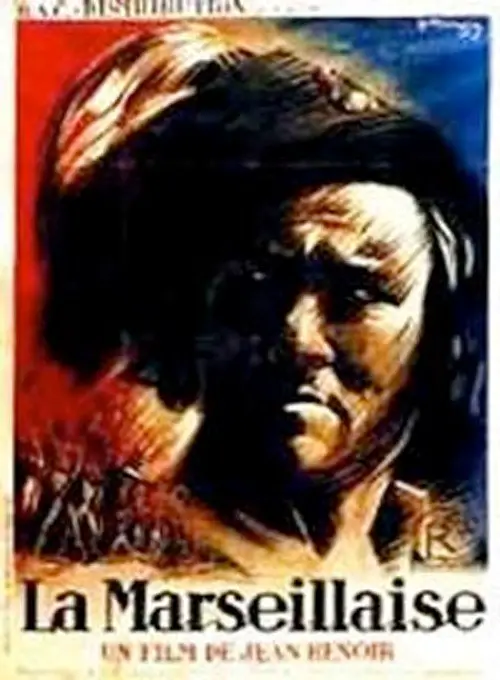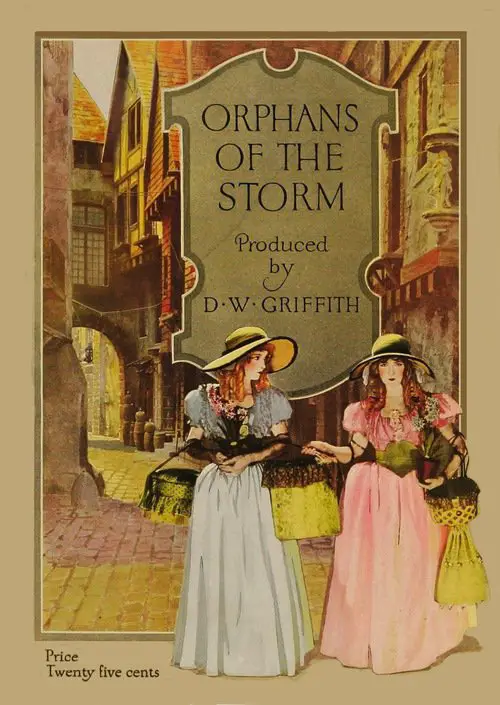Madame Sans-Gêne (1961)
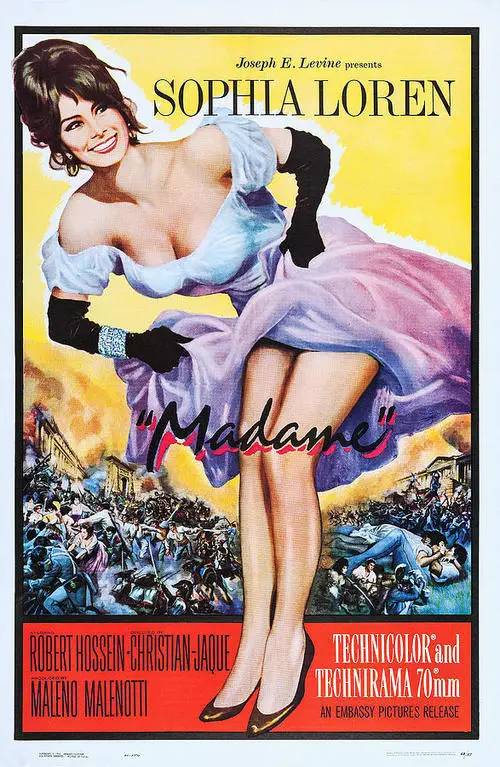
Similar movies
Sir William Hamilton, a widower of mature years, is British ambassador to the Court of Naples. Emma who comes for a visit with her mother wouldn't cut the grade with London society but she gets along well with the Queen of Naples. Emma likes being Lady Hamilton and life goes smoothly until Lord Nelson pays a visit. Sir William decides at first to let his young wife have her fling and pretends not to know what is going on. But the real life lovers, whose first screen romance was in "Fire Over England" (1937) have an even more burning passion for each other in this film.
British barrister Sydney Carton lives an insubstantial and unhappy life. He falls under the spell of Lucie Manette, but Lucie marries Charles Darnay. When Darnay goes to Paris to rescue an imprisoned family retainer, he becomes entangled in the snares of the brutal French Revolution and is himself jailed and condemned to the guillotine. But Sydney Carton, in love with a woman he cannot have, comes up with a daring plan to save her husband.
Two families, cotton merchants in England and America, with branches in France and Prussia swear to stand by each other in a belief that a great business firmly established in four countries will be able to withstand even such another calamity as the Napoleonic Wars from which Europe is slowly recovering. Then many years later, along comes World War One and the years that follow, to test the businesses.
Napoleon, exiled, devises a plan to retake the throne. He'll swap places with commoner Eugene Lenormand, sneak into Paris, then Lenormand will reveal himself and Napoleon will regain his throne. Things don't go at all well; first, the journey proves more difficult than expected, but more disastrously, Lenormand enjoys himself too much to reveal the deception. Napoleon adjusts somewhat uneasily to the life of a commoner while waiting, while Lenormand gorges on rich food.
After defeating France and imprisoning Napoleon on Elba, ending two decades of war, Europe is shocked to find Napoleon has escaped and has caused the French Army to defect from the King back to him. The best of the British generals, the Duke of Wellington, beat Napolean's best generals in Spain and Portugal, but now must beat Napoleon himself with an Anglo Allied army.
This big-budget historical epic from acclaimed Egyptian director Youssef Chahine features a crazed turn by Patrice Chereau as Napoleon Bonaparte. The film, an Egyptian-French co-production, deals with Napoleon's occupation of Alexandria and its effect on a typical Egyptian family. Michel Piccoli leads the cast as a general in Napoleon's army who tentatively befriends a local poet.
Set in the 1800s when Napoleonâs French ruled Europe, the film follows young Austrian carpenter Franz and his Bavarian wife, Katharina as an unforeseen event forces them to flee from Augsburg, Bavaria for Franzâs family home in Tyrol, Austria. Tyrolian sentiment is rising strongly against Napoleon and trouble is stirring. In no time it sweeps up Franz and his brothers along with the whole town.
This breathtaking, visually experimental film from New Wave director Eric Rohmer tells the true story of Grace Dalrymple Elliot (Lucy Russell), a British aristocrat trapped in Paris during the French Revolution. Determined to maintain her stiff upper lip and pampered life despite the upheaval, Grace continues her friendship with the Duke of Orléans (Jean-Claude Dreyfus) while risking her life and liberty to protect a fugitive.
Danton (Gérard Depardieu) and Robespierre (Wojciech Pszoniak) were close friends and fought together in the French Revolution, but by 1793 Robespierre was France's ruler, determined to wipe out opposition with a series of mass executions that became known as the Reign of Terror. Danton, well known as a spokesman of the people, had been living in relative solitude in the French countryside, but he returned to Paris to challenge Robespierre's violent rule and call for the people to demand their rights. Robespierre, however, could not accept such a challenge, even from a friend and colleague, and he blocked out a plan for the capture and execution of Danton and his allies.
A massive 5 1/2 hour biopic of Napoleon, tracing his career from his schooldays (where a snowball fight is staged like a military campaign), his flight from Corsica, through the French Revolution (where a real storm is intercut with a political storm) and the Terror, culminating in his triumphant invasion of Italy in 1797 (the film stops there because it was intended to be part one of six, but director Abel Gance never raised the money to make the other five). The film's legendary reputation is due to the astonishing range of techniques that Gance uses to tell his story, culminating in the final twenty-minute triptych sequence, which alternates widescreen panoramas with complex multiple- image montages projected simultaneously on three screens.
A TV adaptation of the classic Alexandre Dumas novel. Edmond Dantes is falsely accused by those jealous of his good fortune, and is sentenced to spend the rest of his life in the notorious island prison, Chateau d'If. While imprisoned, he meets the Abbe Faria, a fellow prisoner whom everyone believes to be mad. The Abbe tells Edmond of a fantastic treasure hidden away on a tiny island, that only he knows the location of. After many years in prison, the old Abbe dies, and Edmond escapes disguised as the dead body. Now free, Edmond must find the treasure the Abbe told him of, so he can use the new-found wealth to exact revenge on those who have wronged him.
In Charenton Asylum, the Marquis de Sade directs a play about Jean Paul Marat's death, using the patients as actors. Based 'The Persecution and Assassination of Jean-Paul Marat as Performed by the Inmates of the Asylum of Charenton Under the Direction of the Marquis de Sade', a 1963 play by Peter Weiss.
Vitaphone production reels #2471-2478; third Warner Bros. feature film - the first being The Jazz Singer and the second Tenderloin - to include talking sequences, along with the by now usual Vitaphone musical score and sound effects. A copy of this film survives at the Library of Congress in Washington, D.C., but the sound disks are lost.
In the end of 1809, Natasha attends her first ball. Andrei falls in love with her and intends to marry her, but her father demands they wait. The prince travels abroad, and Natasha desperately longs for him. But she then meets Anatol Kuragin and forgets of Andrei. At the last minute, she regrets and abandons her plans to elope with Anatol. Bolkonsky hears of this and declares their betrothal is over. Pierre, trying to calm her down, suddenly announces he loves her.
France, 1719. Louis 14th died four years ago, Philippe d'Orleans is the regent. He is a liberal and a libertine. His right-hand man, Dubois, an atheistic and cupid priest, as libertine as Philippe, tries to take advantage of a little rebellion lead by a Breton squire (Pontallec) and of the famine to become archbishop... Description of the life of the court in this period of transition where the French Revolution smoulders.
In Marseilles, France in 1794, Desiree Clary, a young millinery clerk, becomes infatuated with Napoleon Bonaparte, but winds up wedding Genaral Jean-Baptiste Berandotte, an aid to Napoleon who later joins the forces that bring about the Emperor's downfall. Josephine Beauharnais, a worldly courtesan marries Napoleon and becomes Empress of France, but is then cast aside by her spouse when she proves unable to produce an heir to the throne.
While travelling to visit their grandfather, two children are told the story of a family curse that has lasted two hundred years. During Napoleon's Italian invasion, Elisabetta Benedetti fell in love with French soldier Jean - but while Jean was distracted, Elisabetta's brother Corrado stole some gold that Jean was guarding, and set the curse in train. The Benedettis become wealthy, corrupt and hated by their former friends, who rename them the Maledettis - the cursed. The childrens' grandfather Massimo is the last man to be directly affected by the curse - but will he pass it onto them?
During the Napoleonic Wars, when the French have occupied Spain, some Spanish guerrilla soldiers are going to move a big cannon across Spain in order to help the British defeat the French. A British officer is there to accompany the Spanish and along the way, he falls in love with the leader's girl.
During the French Revolution, a mysterious English nobleman known only as The Scarlet Pimpernel (a humble wayside flower), snatches French aristos from the jaws of the guillotine, while posing as the foppish Sir Percy Blakeney in society. Percy falls for and marries the beautiful actress Marguerite St. Just, but she is involved with Chauvelin and Robespierre, and Percy's marriage to her may endanger the Pimpernel's plans to save the little Dauphin
In 1813, Capitaine Jacques St. Ives, a Hussar in the Napoleonic wars, is captured and sent to a Scottish prison camp. He's a swashbuckler, so the prison's commander, Major Farquar Bolingbroke Chevening, asks for lessons in communicating with women. Both men have their eyes on the lovely Flora, who resides with her aunt, the iconoclastic and well-traveled Miss Susan Emily Gilcrist. By chance, living close to the camp is Jacques's grandfather and brother, whom Jacques believes died years before. Jacques decides to escape, find his relatives, and win the hand of Flora; Major Chevening and an unforeseen enemy stand in his way. Can Miss Gilcrist contrive to make everything work out?
Dangerous Exile is a 1957 British historical drama film directed by Brian Desmond Hurst and starring Louis Jourdan, Belinda Lee, Anne Heywood and Richard O'Sullivan. It concerns the fate of Louis XVII, who died in 1795 as a boy, yet was popularly believed to have escaped from his French revolutionary captors.
Dissolute barrister Sydney Carton becomes enchanted and then hopelessly in love with the beautiful Lucie Manette. But Lucie loves and marries Charles Darnay, and remains oblivious to Carton's undimmed devotion to her. When Darnay is ensnared in the deadly web of the French Revolution and condemned to die by the guillotine, Sydney Carton concocts a dangerous plot to free the husband of the woman he loves.
This faithful BBC adaptation once again brings William Makepeace Thackeray's classic satirical novel to the screen. Becky Sharp (Natasha Little) is a beautiful, clever and poor girl determined to earn a higher place in society at any cost. The Napoleonic Wars provide a dramatic backdrop as Becky sets out to manipulate various characters -- from London ballrooms to the battlefields of Waterloo.
Dangerous Liaisons is the film based on the novel of the same name by Choderlos de Laclos set in 18th century France. Marquise de Merteuilâs asks her ex-lover Vicomte de Valmont to seduce the future wife of another ex-lover of hers in return for one last night with her. Yet things donât go as planned in this love triangle drama.
An account of the adventures of two sets of identical twins, badly scrambled at birth, on the eve of the French Revolution. One set is haughty and aristocratic, the other poor and somewhat dim. They find themselves involved in palace intrigues as history happens around them. Based, very loosely, on Dickens's "A Tale of Two Cities," Dumas's "The Corsican Brothers," etc.
Set in 19th-century Russia, Allen is a cowardly serf drafted into the Napoleonic war, who would rather write poetry and obsess over his beautiful but pretentious cousin. Allen's cowardice serves him well when he hides in a cannon and is shot into a tent of French soldiers, making him a national hero. A hilarious parody of Russian literature, Love and Death is a must-see for fans of Allen's films.
Elba island, 1814. Martino is a young teacher, idealist and strongly anti Napoleon, in love with the beautiful and noble Baroness Emily. The young man finds himself serving as librarian to the Great Emperor in exile, whom he deeply hates, yet soon begins recording Napoleon's memoirs, getting to know and learning to value the man behind the myth. Among seductions and affairs, expectations and fears, he will craft a precise portrait that nevertheless will not manage to hide a final, inevitable, disappointment.
It's the 22nd of December. Sixteen years have passed since the revolution, and in a small town Christmas is about to come. Piscoci, an old retired man is preparing for another Christmas alone. Manescu, the history teacher, tries to keep up with his debts. Jderescu, the owner of a local television post, seems not to be so interested in the upcoming holidays. For him, the time to face history has come. Along with Manescu and Piscoci, he is trying to answer for himself a question which for 16 years has not had an answer: "Was it or wasn't it a revolution in their town?"
Balthazar Blake is a master sorcerer in modern-day Manhattan trying to defend the city from his arch-nemesis, Maxim Horvath. Balthazar can't do it alone, so he recruits Dave Stutler, a seemingly average guy who demonstrates hidden potential, as his reluctant protégé. The sorcerer gives his unwilling accomplice a crash course in the art and science of magic, and together, these unlikely partners work to stop the forces of darkness.
Based on a theatrical text by Romanian writer Ion Luca Caragiale (1852-1912), who was a bitter and funny witness of the turn-of-the-20th-century Romanian bourgeois mores, Carnival Scenes manages to preserve and further enhance the slightly hysteric atmosphere of his plays. Pintilie creates a strange combination of carnival scenes which is brought to the screen as a burlesque, fast-paced, screwball comedy with a meditative undertone. This film was banned in Romania for a decade until the death of Ceausescu in 1989 and was only released after the 1989 revolution.
In Okayama in the mid-1930s, Kiroku attends high school and boards with a Catholic family whose daughter, Michiko, captures his heart. He must, however, hide his ardor and other aspects of his emerging sexuality, focusing his energy on a gang he joins, breaking school rules, and getting into scuffles (he tells her, "Oh, Michiko, I don't masturbate, I fight"). He comes under the influence of a young tough nicknamed Terrapin, and together they lead fights against rival gangs. Gradually, Kiroku and Terrapin align themselves with the right-wing Kita Ikki, and Kiroku becomes a stand-in for the attitudes of Japanese youth who embraced the imperialism leading to World War II.
Henriette and Louise, a foundling, are raised together as sisters. When Louise goes blind, Henriette swears to take care of her forever. They go to Paris to see if Louise's blindness can be cured, but are separated when an aristocrat lusts after Henriette and abducts her. Only Chevalier de Vaudrey is kind to her, and they fall in love. The French Revolution replaces the corrupt Aristocracy with the equally corrupt Robespierre. De Vaudrey, who has always been good to peasants, is condemned to death for being an aristocrat, and Henriette for harboring him. Will revolutionary hero Danton, the only voice for mercy in the new regime, be able to save them from the guillotine?
© Valossa 2015–2026
| Privacy Policy
